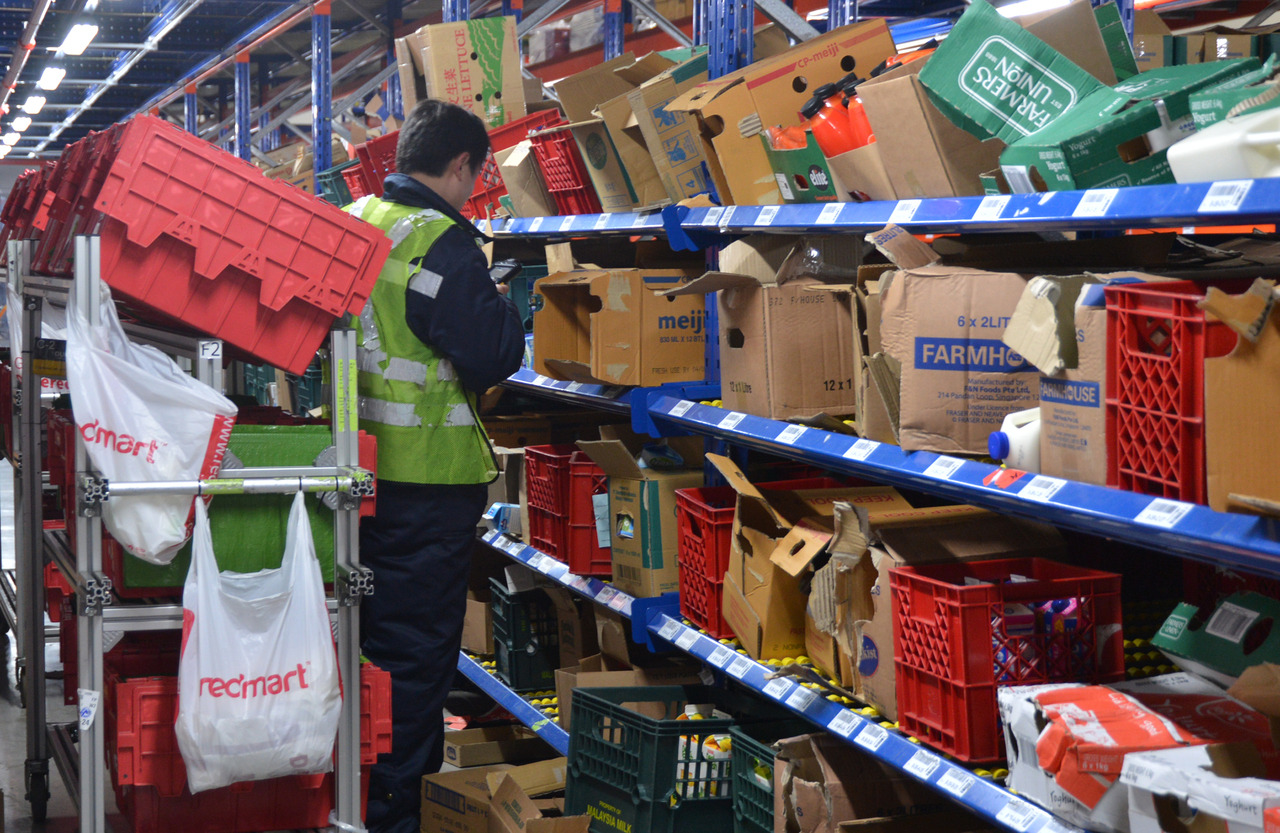E-commerce sales in Singapore forecast to hit $13.4 billion by 2026: Report
Sign up now: Get ST's newsletters delivered to your inbox

South-east Asian consumers are also getting more comfortable with buying a wider range of items, such as fresh groceries.
PHOTO: ST FILE
SINGAPORE - E-commerce sales in Singapore are expected to grow to US$10 billion (S$13.4 billion) by the end of 2026, said a report by Facebook and management consultancy Bain & Company released on Tuesday (Aug 31).
The country joins the rest of the region in the online economy boom fuelled by the pandemic-induced digital shift and as hybrid work arrangements look set to become the norm.
South-east Asia's e-commerce gross merchandise value is expected to nearly double to US$254 billion in five years, up from the US$132 billion forecast in 2021, said the latest Sync South-east Asia Report.
Online sales in Singapore will hit an estimated US$8 billion this year.
The region has seen 70 million new digital consumers - or those who have purchased a product online in the past 12 months - since the start of the pandemic.
Mr Benjamin Joe, vice-president of South-east Asia and emerging markets at Facebook, said staying at home has changed consumer behaviour online.
"E-commerce now outranks gaming as one of the top activities consumers do online, possibly because it is evolving to blend entertainment with shopping... Online channels have become more prevalent, from discovery to purchase," he said in a virtual briefing.
South-east Asian consumers are also getting more comfortable with buying a wider range of items, said the report, which involved a survey of more than 16,700 consumers across six markets in May this year.
Notably, fresh groceries were purchased online by 59 per cent of respondents for the first time in the past three months, while food deliveries stood at 56 per cent and healthcare products 52 per cent.
The number of respondents who said they shop mostly online went up from 33 per cent last year to 45 per cent this year, with the largest increase coming from Singapore, Malaysia and the Philippines.
More than half of those surveyed here said they mainly shop online, compared with 35 per cent last year.
Consumers buying groceries, personal care products and home furnishings contributed to the largest increase in regional consumers who mainly shop online.
The increase in contribution of online retail to total retail for key categories was larger in South-east Asia - from 5 per cent last year to an estimated 9 per cent this year - than in Brazil, China or India.
In the first quarter, the Internet and tech sectors accounted for the lion's share of private equity and venture capital funding, at 88 per cent, in South-east Asia.
It outdid India, which accounted for 52 per cent, as well as China's 20 per cent and Brazil's 18 per cent.
Social commerce - buying and selling that takes place entirely on social media and other networking sites - has also gained traction.
It accounted for around 20 per cent of South-east Asian consumers' total online spend across all categories, including clothes, furniture, appliances and groceries.
"The growth of social commerce has been fuelled by Covid-19 restrictions and underlying demand. Key factors driving the growth include demand from consumers to have discovery and purchase on the same platform, direct two-way communication and the wide adoption of social media in South-east Asia," said Mr Joe.
Consumers also have sustainability concerns on their mind when they shop, with 92 per cent of South-east Asian consumers willing to pay a premium to factor in sustainability and social responsibility in the products they consume.
Those who said they are willing to pay up to 10 per cent more account for 72 per cent to 86 per cent of respondents in the various markets.
However, Singapore lags behind in this respect, with a quarter of respondents here unwilling to pay more for sustainability.
Mr Praneeth Yendamuri, partner at Bain & Company, said one reason for this could be that consumers in some countries might be more exposed to the impact of environmental damage and therefore more inclined to buy from sustainable or socially responsible brands.
He said that among other factors, companies need to rethink sustainability as a revenue driver as they devise their supply chains and products.
Mr Yendamuri added that hybrid work arrangements are likely to continue post-pandemic.
"It's imperative that companies cater to this at-home focus, going forward."



